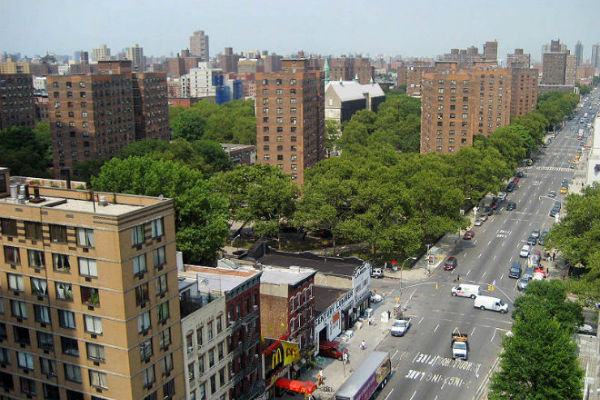 City Limits reports that last Wednesday, city planners returned to the East Harlem community board to give their first update since the City Council’s passage of the East Harlem rezoning last November.
City Limits reports that last Wednesday, city planners returned to the East Harlem community board to give their first update since the City Council’s passage of the East Harlem rezoning last November.
The mood in the room at the Land Use Committee meeting may have been less jittery than last spring, when, in halls flooded with protestors, the full board was racing against the clock to make a decision about whether to support the De Blasio administration’s proposed rezoning plan. At the least, there were some jokes this time around: “Y’all have my e-mail, my number, I’m not giving you my home address,” said Calvin Brown of the Department of City Planning (DCP).
Yet strong disagreements and concerns remain about the plan that ultimately passed, which was a modified version of the city’s proposal accompanied by what City Hall calculates to be $178 million in neighborhood investment.
The neighborhood rezoning—the de Blasio administration’s third to be approved—increased the allowable residential and commercial development on several neighborhood corridors, with a portion of that development required to be income-targeted under the city’s mandatory inclusionary housing policy.
Throughout the planning process prior to the rezoning’s approval, the community was deeply divided. Some, including the community board and Borough President Gale Brewer, pushed to make the city’s plan more like the East Harlem Neighborhood Plan, a proposal for a more modest rezoning and comprehensive set of neighborhood initiatives crafted by a steering committee of stakeholders appointed by local councilmember Speaker Melissa Mark-Viverito. Ultimately, those advocates gave City Limits differing impressions of the final plan negotiated by Mark-Viverito and the City Council: some felt the Council had done fairly well, while others felt the Council had failed to attain many of their asks.
Then there were the advocates who always believed any rezoning would cause gentrification and displacement and who remain adamantly opposed.
What these advocates are doing now also varies: Some opponents are suing the city with the help of the Legal Aid Society, which had already launched a court case with Crown Heights residents to stop the Bedford Union Armory redevelopment. Others are focused on continued advocacy to make the plan better, or on holding the city accountable to its promises.
Become a Harlem Insider!
By submitting this form, you are consenting to receive marketing emails from: . You can revoke your consent to receive emails at any time by using the SafeUnsubscribe® link, found at the bottom of every email. Emails are serviced by Constant Contact








